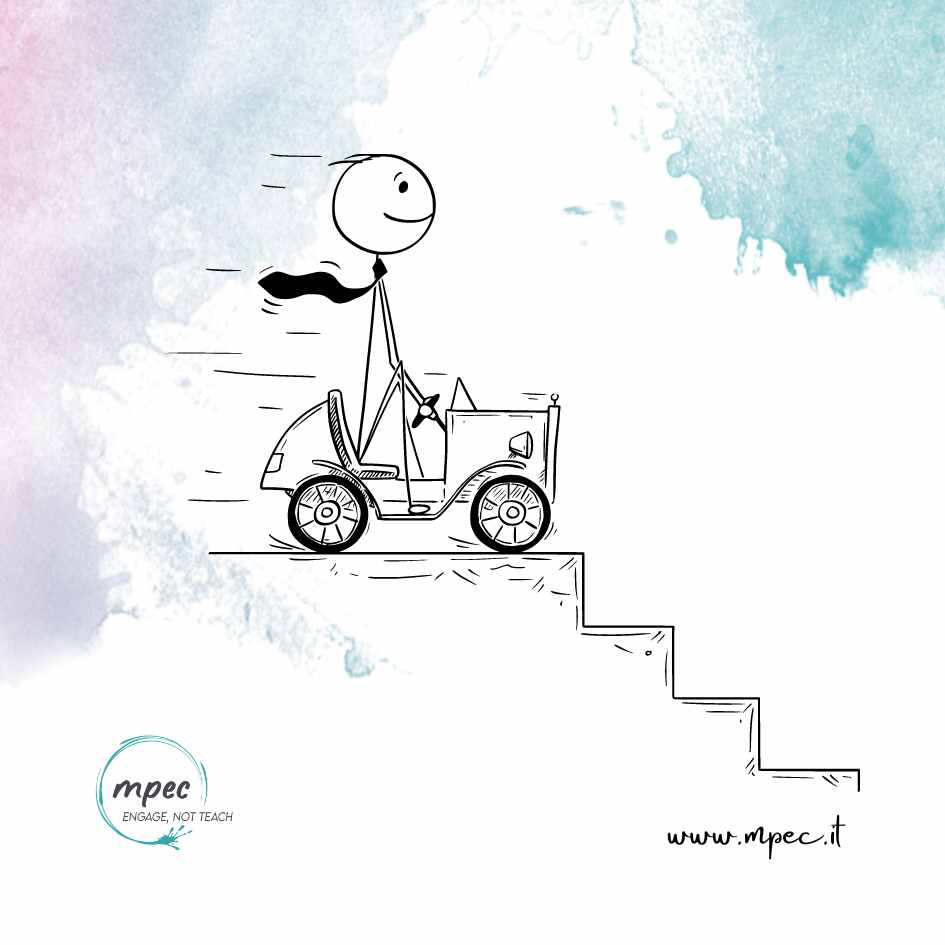Do you ever find yourself at a loss for words when speaking in English, even though you’ve been studying the language for years? This phenomenon, often referred to as a ‘communication block’, is not just a linguistic challenge but also a neuroscientific puzzle. By understanding the brain science behind these blocks and employing targeted strategies, we can overcome them.
Prepared with love by My Personal English Coach, December, 2023
The Neuroscience of Language and Communication Blocks
1. The Role of Neuroplasticity: Neuroplasticity, the brain’s ability to reorganize itself by forming new neural connections, plays a crucial role in language learning and usage. Each time you practice English, your brain strengthens the pathways associated with the language. However, under stress or pressure, these pathways might not function optimally, leading to communication blocks. This is similar to the “brain rewiring” process described in the “La Neuroplasticità nella Gestione Dello Stress” course, where consistent practice is key to modifying entrenched habits and thought patterns.
2. Emotional and Psychological Factors: Emotions greatly influence our ability to communicate. The fear of making mistakes or feeling embarrassed can activate the brain’s stress response, impeding the neural pathways responsible for language processing and recall. This aligns with the “Neurological Foundations of Emotions” section from the same course, highlighting how emotions can affect our daily behaviour, including communication.
3. Stress and the Nervous System: Stress can trigger the body’s ‘fight or flight’ response, diverting resources away from ‘non-essential’ functions like language processing. This is a protective mechanism but can be counterproductive in language learning and usage, as found in the “Stress and the Nervous System” segment of the training.
Strategies to Overcome Communication Blocks
1. Embrace Neuroplasticity Through Consistent Practice: Just as the “Neuroplasticità e Brain Rewiring” section of the training suggests, consistent practice can lead to the reconfiguration of neural connections. Engage in regular English conversations, listening exercises, and writing. This consistent exposure helps the brain become more adept at accessing and using the language, even under pressure.
2. Manage Stress and Emotions: Employ stress management techniques such as mindfulness, deep breathing, or progressive muscle relaxation. These methods can calm the nervous system and improve your brain’s ability to access linguistic information. The “La Scienza della Regolazione Emotiva” module provides insights into regulating emotions effectively.
3. Foster a Growth Mindset: Carol S. Dweck’s “Mindset: The New Psychology of Success” emphasizes the power of a growth mindset. Embrace mistakes as learning opportunities rather than failures. This shift in perspective can reduce the fear and embarrassment that often cause communication blocks.
4. Engage in Neuro-Linguistic Programming (NLP) Techniques: NLP, a psychological approach that involves understanding and changing thought patterns, can be extremely beneficial. Techniques like visualization or positive self-talk can reprogram your mind to be more confident and less anxious when using English.
5. Seek Professional Guidance: Consider enrolling in courses like “La Neuroplasticità nella Gestione Dello Stress” or seeking help from a language coach. These professionals can provide personalized strategies and support based on your unique challenges and goals.
Communication blocks in English, or any language, are not just linguistic barriers but are deeply rooted in our brain’s functioning and our psychological state. By understanding the neuroscience behind these blocks and employing strategies like consistent practice, stress and emotion management, fostering a growth mindset, using NLP techniques, and seeking professional guidance, we can effectively overcome these hurdles. Remember, the key to mastering a language lies not only in understanding its grammar and vocabulary but also in understanding and harnessing the power of your own brain.
Practical Experiments for Each Strategy to Overcome Communication Blocks
1. Embrace Neuroplasticity Through Consistent Practice
Self-Coaching Tip: Daily Language Immersion Experiment
- Experiment: Choose a specific time each day to immerse yourself in English. This could be a 15-minute session where you listen to an English podcast, watch an English video, or read an English article. Record any new words or phrases in a journal.
- Purpose: This daily practice helps to strengthen the neural pathways associated with English, making retrieval and usage of the language more fluid over time.
2. Manage Stress and Emotions
Self-Coaching Tip: Mindful Breathing Before Speaking
- Experiment: Before engaging in an English conversation, take two minutes to practice deep, mindful breathing. Inhale deeply for a count of four, hold for a count of four, and exhale for a count of four.
- Purpose: This exercise helps calm your nervous system, reducing stress and anxiety, which can improve your brain’s ability to process and recall language.

3. Foster a Growth Mindset
Self-Coaching Tip: The ‘Mistake Journal’
- Experiment: Keep a ‘Mistake Journal’ for your English practice. Every time you make a mistake, write it down and beside it, write what you learned from it or how it can be corrected.
- Purpose: This exercise shifts your perspective on mistakes, viewing them as opportunities for growth and learning, which can reduce the fear of making errors.
4. Engage in Neuro-Linguistic Programming (NLP) Techniques
Self-Coaching Tip: Positive Affirmation Practice
- Experiment: Create a set of positive affirmations related to your English learning, such as “I am confident in my English speaking abilities.” Repeat these affirmations out loud every morning.
- Purpose: This practice helps reframe your mindset, reducing anxiety and building confidence in your language abilities.
5. Seek Professional Guidance
Self-Coaching Tip: Reflective Listening Exercise
- Experiment: Record yourself speaking in English for a few minutes, then listen to the recording. Reflect on areas of improvement and strengths.
- Purpose: This self-assessment exercise can help you identify specific areas where you might need professional guidance or focused practice.
These self-coaching tips provide practical, manageable ways to overcome communication blocks in English. By integrating these experiments into your routine, you can make significant strides in improving your language skills, backed by an understanding of the underlying neuroscience. Remember, the journey to language proficiency is a combination of consistent practice, emotional regulation, mindset growth, psychological strategies, and guided learning.
Get In Touch To Discuss More Tailor-Made Steps You Can Take
Bilingual Identity and Identità Bilingue #BilingualIdentity #IdentitàBilingue #LanguageLearning #ApprendimentoLingua #EnglishProficiency #CompetenzaInglese #ImproveEnglish #MigliorareInglese #EnglishSkills #CompetenzeInglese #LanguageExchange #ScambioLinguistico #EnglishListening #CapacitàAscoltoInglese #EnglishVocabulary #VocabolarioInglese #EnglishPronunciation #PronunciaInglese #LearningStrategies #StrategieApprendimento
Language Learning and Apprendimento della Lingua
English Proficiency and Competenza in Inglese
Improve English and Migliorare l’Inglese
English Skills and Competenze in Inglese
Language Exchange and Scambio Linguistico
English Listening Skills and Capacità di Ascolto in Inglese
English Vocabulary and Vocabolario Inglese
English Pronunciation and Pronuncia Inglese
Learning Strategies and Strategie di Apprendimento





